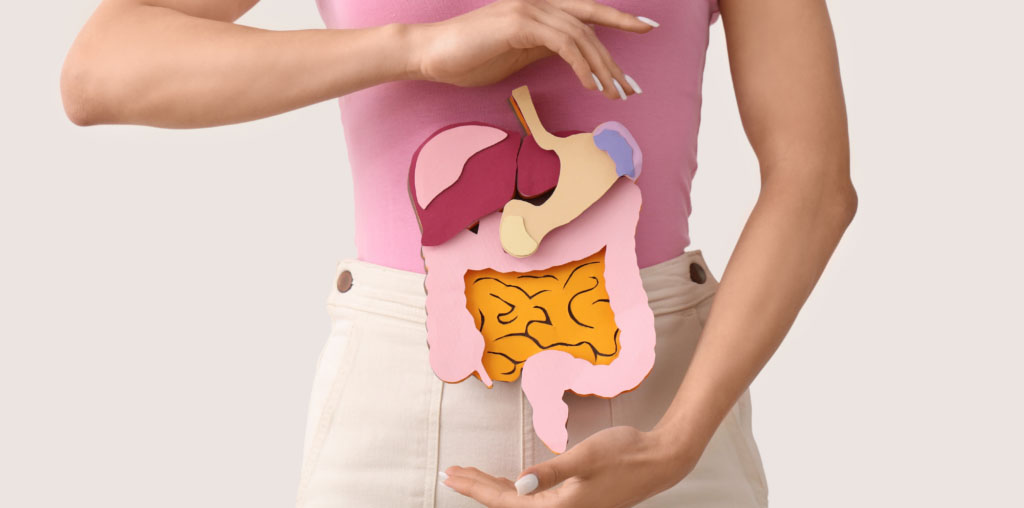Often mentioned in the context of health and weight loss, it remains an enigmatic concept for many. In this article, we will take a closer look at what exactly this process is, what is behind it and why its proper functioning plays a key role in maintaining health.
What is energy metabolism?

It is a set of biochemical processes that occur in our body to convert food into the energy necessary to sustain all vital functions, from respiration to digestion to cell regeneration. Without proper metabolism, our body could not function properly and we would not be able to maintain our health and well-being.
Two key groups of metabolic processes:
- Catabolism – breakdown processes where the body breaks down nutrients such as carbohydrates, fats and proteins into simpler chemical compounds. These processes result in the production of energy, which is required to sustain vital functions.
- Anabolism – the building processes during which the body uses energy to synthesise new, more complex chemical compounds, such as proteins, lipids or nucleic acids.
Biochemistry or how metabolic processes work

1. Carbohydrate processing
Carbohydrates are one of the main sources of energy for our body. When we eat carbohydrates, they are broken down into glucose, which enters the bloodstream. Glucose is used by the cells as fuel, and if there is too much of it, it is stored as glycogen in the liver and muscles.
2. Fat metabolism
Fats are a more complex source of energy, but provide much more energy than carbohydrates. Fats are broken down into fatty acids and glycerol, which are then converted into ATP. This process mainly takes place in the mitochondria of cells and is called beta-oxidation. Fats are stored in the body in adipose tissue and can be used as an energy reserve in situations where glucose is in short supply.
3. Breakdown of proteins
Proteins are mainly used to build and repair tissues, but under certain conditions they can also provide energy. When the body needs energy and sufficient glucose or fat is not available, proteins are broken down into amino acids, which can be converted into energy compounds. However, this process is less efficient and less desirable than the metabolism of carbohydrates and fats.
Why is correct metabolism crucial to health?

The proper functioning of this system is essential for maintaining the body’s energy balance, which is crucial for many aspects of health:
Weight control – Energy metabolism plays a key role in weight management. If the body burns more calories than it consumes, weight loss occurs. If calorie intake exceeds demand, excess energy is stored as fat, leading to weight gain.
Energy levels – An adequate metabolism ensures that the body has access to enough energy to meet daily challenges. People with a slow metabolism may feel more tired and lethargic because their body processes energy more slowly.
Cellular health – Our body’s cells need constant access to energy to regenerate and perform their functions. Inadequate energy metabolism can lead to cellular damage and thus the development of many diseases.
Protection against disease – A metabolism that is too slow or too fast can contribute to health problems. A proper balance in metabolism is key to preventing disease and keeping the body in good shape.
Metabolic diseases - am I at risk?

- Type 2 diabetes – A chronic condition where the body uses insulin inefficiently to regulate glucose. This results in chronically high sugar levels, leading to serious complications.
- Metabolic syndrome – Combines several adverse health factors such as abdominal obesity, elevated blood pressure, high cholesterol and insulin resistance. People with metabolic syndrome are at higher risk of heart disease, stroke and type 2 diabetes.
- Inborn metabolic disorders – rare but serious conditions that are present from birth and result from genetic defects. An example is phenylketonuria, in which the body is unable to metabolise the amino acid phenylalanine, which can even lead to brain damage.
- Dyslipidaemia – A disorder in which there are abnormal levels of lipids in the blood, such as elevated LDL cholesterol and reduced HDL cholesterol. It can lead to the development of atherosclerosis and increases the risk of heart disease and stroke.
Factors affecting metabolic processes

Many factors influence the speed and efficiency of energy metabolism. Here are the most important of these:
1. Metabolism declines with age
As the body ages, the metabolic rate usually decreases. This means that as we age, our body burns fewer calories at rest, which can lead to weight gain if we do not adjust our diet or physical activity levels.
2. Gender differences
Women tend to have a slower metabolism than men due to differences in body composition. Men tend to have more muscle, which uses more energy than body fat.
3. Level of physical activity
We have mentioned the impact of physical activity on the whole body in this article. It is one of the best ways to improve fitness and speed up energy metabolism. Exercise, especially strength training, increases muscle mass, which helps you burn more calories even at rest.
4. Just and up to genetics
Metabolism largely depends on genetics. Some people have a fast metabolism by nature, while others need to be more concerned with diet and activity to maintain a healthy weight.
5. A suitable diet
A diet rich in protein can increase thermogenesis (thermogenesis involves the production of heat in the body), which speeds up metabolism. Low-calorie diets, on the other hand, can slow down metabolism as the body goes into energy-saving mode. Additionally, if you have a busy lifestyle, it is worth considering additional dietary supplements – Endotelio Cellular Energy supports energy metabolism and proper muscle function, thanks to the vitamins and minerals it contains. You can read about the other benefits here.
Key nutrients to support energy processes
| Nutrient | Role in metabolism | Sources |
|---|---|---|
| Carbohydrates | Main source of energy for the body | Bread, rice, fruit, vegetables |
| Proteins | Building blocks for tissues and enzymes | Meat, fish, eggs, legumes |
| Fats | A source of concentrated energy | Seeds, nuts, vegetable oils |
| Vitamins and minerals | Support for metabolic enzymes | Vegetables, fruits, nuts, whole grain products |
Support for better metabolism

Although many factors affecting metabolism are beyond our control, there are ways to help it work:
- Exercise? – Regular exercise, especially strength training, increases muscle mass, which promotes a faster metabolism.
- Eat healthy – Choosing foods rich in protein, healthy fats and complex carbohydrates helps your metabolism to be more efficient.
- Sleep well and recover – Not getting enough sleep can slow down your metabolism. Regular sleep supports a healthy metabolism and well-being.
- Drink plenty of fluids, preferably water – avoid sugary, fizzy drinks – they only slow down your metabolism!
- Avoid long-term low-calorie diets – your body starts to conserve energy, so you automatically slow down your energy metabolism.
- Stress is your enemy – it leads to increased levels of cortisol, a hormone that can slow down your metabolism and contribute to fat accumulation, especially in the abdominal area.
To conclude, a handful of interesting facts
Metabolism is accelerated by caffeine and spices such as chilli, cayenne pepper and turmeric. Caffeine stimulates the nervous system, increasing calorie burning. Studies have shown that it can increase the metabolic rate by up to 10-15% for several hours after consumption. On the other hand, the capsaicin in chilli intensifies thermogenesis – the body’s production of heat. After protein meals, the body burns more calories than after fats or carbohydrates, which is called the thermogenic effect of eating.


